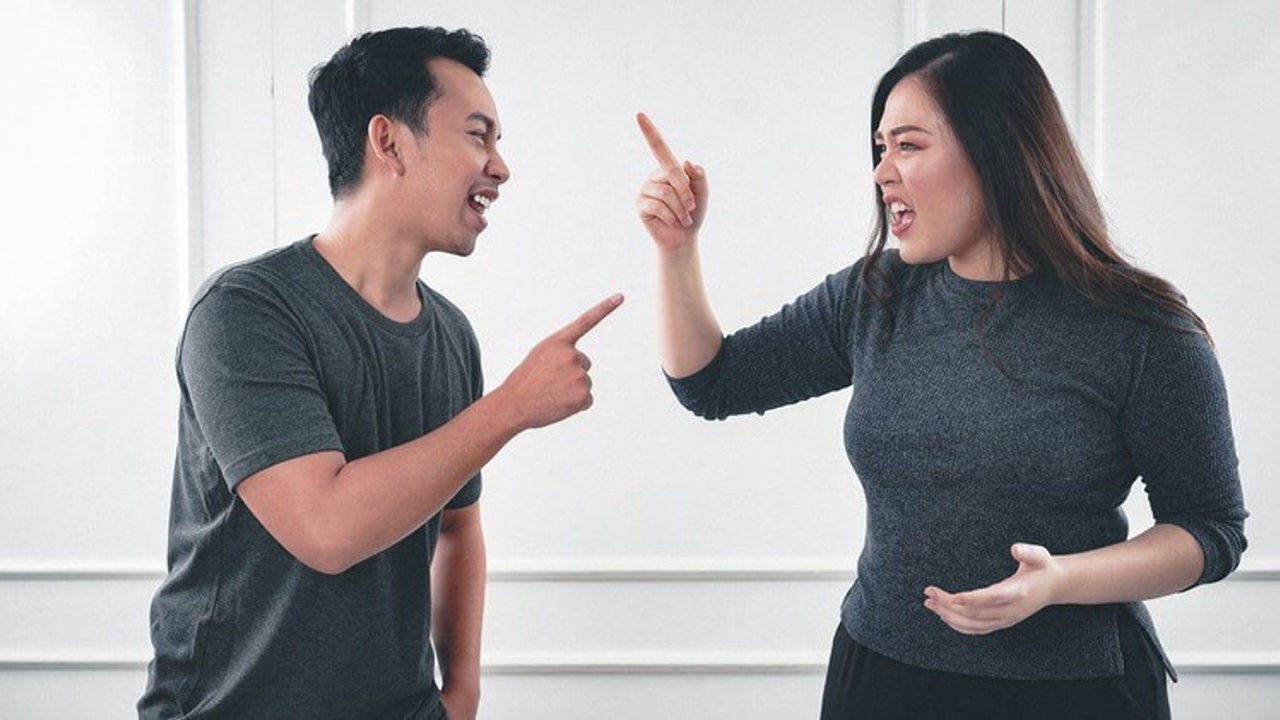What Is Defensiveness and How It Becomes A Vicious Cycle
Oct 20, 2021
Defensiveness is a psychological defense mechanism that is often used in response to criticism.
This psychological defense mechanism is often used by couples during conflict and can lead to a vicious cycle where both partners become critical and defensive.
This is especially important to understand when it comes to financial conflict as defensiveness stops couples from productive problem solving and stops financial empathy and intimacy.
What Is Defensiveness?
Defensiveness is most often a response to criticism. It’s when a person tries to defend themselves from feeling angry, hurt, or ashamed when they perceive the other person as critical.
Criticism may make the other partner feel anxious or worried that the other partner does not care for them. They may have low self-esteem or depression. They may experience self-blame, guilt, or shame about what they are perceiving as criticism.
These feelings and experiences may lead the person to defend themselves and try to stop feeling this way. This can lead them to become defensive.
Defensiveness often results from an attempt to protect oneself against perceived threats. When this happens, people tend to become rigidly set in their opinions and beliefs and refuse to see the other person’s point of view. They often turn things around and blame the other person for how they’re feeling or become critical of themselves.
A person can become defensive because of a fear of rejection, abandonment, humiliation, or failure.
Defensiveness can sneak up on you without our realizing it until it has already entrenched in your relationships and done its damage.
Purpose of Defensiveness
The purpose of defensiveness is to protect yourself against criticism by others.
It can also be used to avoid conflict with other people. Defensive behaviors can distract you from your feelings, particularly feeling ashamed or hurt.
The core purpose of defensiveness is to turn the attention away from you and toward the faults of the other person.
In this way, you're directing blame toward the other person.
Although these behaviors may make you feel good at the moment they ultimately leave you feeling worse.
A Vicious Cycle
When you direct blame at other people to avoid feeling criticized or attacked you end up becoming critical yourself. This can end up creating defensiveness in the other person.
Then, a cycle can ensue where defensiveness and criticism cycle back and forth between each partner in an endless loop.
Without intervention, this can be extremely destructive to a relationship.

Types of Defensiveness
Types of defensiveness include:
- Bringing up the past - reminding someone of past mistakes.
- Silent treatment - not speaking to someone or ignoring their attempts to resolve conflict.
- Gaslighting - making the other person doubt their reality or their memory.
- Attack - attacking the other person to discredit them.
- Blaming - shifting blame for whatever you're being criticized for to the other person.
- Indignation - acting as if the other person shouldn’t question you because your stance is morally superior.
- Playing the victim - agreeing with the other person but them making them feel guilty.
Causes of Defensiveness
There are many reasons why people act defensively. Defensiveness can be learned in childhood and may result from childhood trauma.
Some examples of the causes of defensiveness include:
- Feeling like others don't care enough about you.
- Being afraid of rejection.
- Having low self-esteem.
- Lacking confidence.
- Fearing failure.
- Not knowing how to handle criticism.
- Avoiding conflict.
- Childhood trauma.
- Anxiety.
- Inability to be assertive.
- Reaction to shame or guilt.
- Hiding the truth.
- Unwillingness to admit mistakes.
- Response to criticism of your behavior or character.
- Learned behavior from childhood.
The most important reason behind defensiveness is fear. People who are fearful tend to overreact to situations because they believe their fears will come true.
How To Recognize Defensiveness
Recognizing that you are becoming defensive is an essential component to overcoming defensiveness. The first step toward dealing with being defensive is recognizing that you are starting to act defensively.
Signs you're becoming defensive include:
- Blaming the other person for what they're criticizing you for.
- Accusing the other person of being defensive.
- Justifying your actions.
- Bringing up the past.
- Not listening.
- Making excuses.
- Telling the other person they shouldn't feel how they do.

Overcoming Defensiveness
Once you realize you're being defensive, ask yourself these questions:
- Why am I acting in a defensive way?
- Do I know how my behavior affects me?
- How is my defensive behavior impacting the resolution of this conflict?
- How am I feeling right now?
- How can I validate my feelings?
- How can I choose not to act on my defensiveness, even though I'm feeling defensive?
- What other behaviors would be more productive in reaching my desired outcome right now?
- How can I anticipate when I'm about to get defensive in the future?
Other ways to deal with defensiveness include building your self-esteem, dealing with underlying mental health issues, learning effective communication skills, and seeking out counseling.
In my transformational course, The Couples Guide to Financial Intimacy, I teach couples how to avoid getting stuck in unhealthy communication patterns around money.
Would you like more 1 on 1 support? Then perhaps Therapy Informed Financial Planning is for the two of you. I invite you to schedule your free 30-minute discovery call today.
Wishing You Healthy Love and Money,
Ed Coambs
MBA, MA, MS, CFP®, CFT-I™, LMFT
Curious About Your Attachment Style?
Take the Attachment Style Quiz now and learn how it impacts your relationships, finances, and life!



